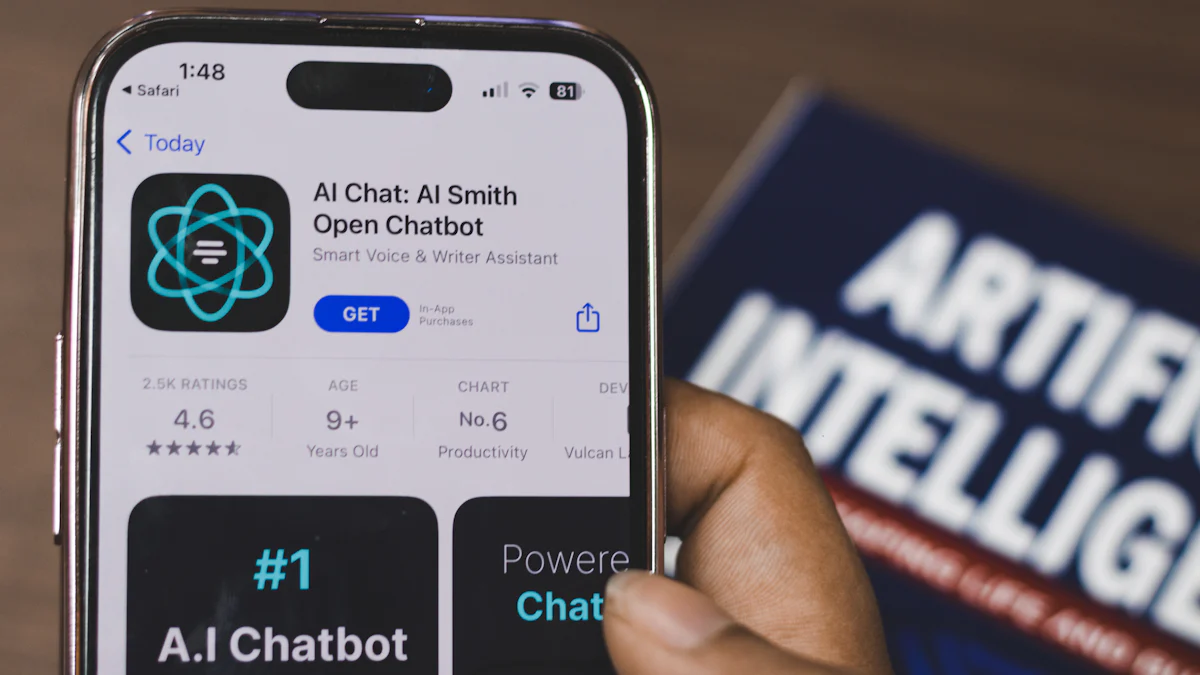Evaluating AI Hiring Software's Impact on Candidate Selection

AI hiring software has revolutionized candidate selection, transforming how companies identify and recruit talent. With 88% of companies globally integrating AI into HR processes, the impact is undeniable. These tools promise efficiency, with some firms reporting a 90% reduction in time-to-fill ratios. However, concerns about fairness and transparency persist. While AI can streamline recruitment, it also raises questions about algorithmic bias and decision-making clarity. The dual nature of AI's impact presents both opportunities and challenges, urging a balanced approach to harness its full potential.
Key Takeaways
AI hiring software significantly boosts recruitment efficiency by automating repetitive tasks, allowing recruiters to focus on strategic hiring aspects.
By reducing time-to-hire, AI tools help companies secure top talent faster, which is crucial in competitive job markets.
AI can minimize human bias in candidate selection by relying on data-driven decision-making, promoting fairness and diversity in hiring.
Enhancing the candidate experience is a key benefit of AI, as it enables personalized communication and faster feedback loops.
Despite its advantages, organizations must be cautious of algorithmic bias and ensure regular audits of AI systems to maintain fairness.
Transparency in AI decision-making is essential for building trust among candidates and stakeholders, requiring clear communication about how AI tools operate.
Balancing AI tools with human judgment is vital to avoid overlooking qualified candidates and to ensure a holistic recruitment process.
Benefits of AI Hiring Software

Efficiency in Recruitment
AI hiring software significantly enhances the efficiency of recruitment and selection processes. Traditional hiring methods often involve time-consuming tasks, such as manually sifting through resumes and scheduling interviews. AI-driven methods streamline these processes by automating repetitive tasks. For instance, AI can quickly analyze large volumes of resumes, identifying candidates whose skills and experiences align with job descriptions. This automation not only saves time but also allows recruiters to focus on more strategic aspects of hiring.
Streamlining Processes
AI hiring software excels at streamlining recruitment processes. By automating the initial screening of candidates, it reduces the workload on human recruiters. This technology evaluates resumes, classifies candidates, and even schedules interviews, all without human intervention. As a result, companies can process applications more swiftly and efficiently, ensuring that they do not miss out on top talent due to delays.
Reducing Time-to-Hire
One of the most significant advantages of AI hiring software is its ability to reduce time-to-hire. By automating various stages of recruitment and selection, AI tools can cut down the time it takes to fill positions. This speed is crucial in competitive job markets where the best candidates are often off the market quickly. Companies that leverage AI hiring tools can secure top talent faster, giving them a competitive edge.
Bias Reduction Potential
AI hiring software holds the promise of reducing bias in recruitment and selection. Human recruiters, despite their best intentions, can be influenced by unconscious biases. AI, when properly designed and implemented, can help mitigate these biases by focusing solely on data-driven decision-making.
Data-Driven Decision-Making
AI hiring software relies on data to make decisions. It evaluates candidates based on objective criteria, such as skills, experience, and qualifications, rather than subjective factors. This data-driven approach ensures that decisions are consistent and fair, reducing the likelihood of bias affecting the outcome.
Minimizing Human Bias
By minimizing human involvement in the initial stages of recruitment and selection, AI hiring software can help reduce unconscious bias. It evaluates candidates based on their qualifications and fit for the role, rather than personal characteristics. This approach promotes diversity and inclusion, ensuring that all candidates have an equal opportunity to succeed.
Enhanced Candidate Experience
AI hiring software not only benefits employers but also enhances the candidate experience. In today's fast-paced world, candidates expect timely and personalized communication from potential employers. AI-powered technology can deliver on these expectations, improving the overall recruitment and selection process.
Personalized Communication
AI hiring software enables personalized communication with candidates. It can send tailored messages and updates, keeping candidates informed about their application status. This level of personalization makes candidates feel valued and respected, enhancing their overall experience with the company.
Faster Feedback Loops
Candidates appreciate prompt feedback during the recruitment and selection process. AI hiring software facilitates faster feedback loops by automating communication. Candidates receive timely updates on their application status, interview schedules, and next steps. This efficiency not only improves the candidate experience but also reflects positively on the company's brand.
Drawbacks of AI Hiring Tools
Algorithmic Bias Concerns
AI hiring tools, while promising, often face challenges related to algorithmic bias. These biases can arise from the data used to train the AI systems. If the training data contains biased selection criteria, the AI screening process may inadvertently perpetuate these biases. For instance, if historical data reflects a preference for certain demographics, the AI recruitment algorithms might favor similar candidates, leading to discrimination.
Bias in Training Data
Training data forms the backbone of AI-based tools. When this data is skewed or incomplete, it can lead to biased outcomes. AI screening technology relies heavily on past data to make decisions. If this data includes systemic flaws, such as gender or racial biases, the AI tools will likely replicate these issues. This can result in unfair hiring practices, where certain groups are consistently overlooked.
Risk of Perpetuating Inequalities
The risk of perpetuating inequalities remains a significant concern with AI screening. By relying on historical data, AI-based tools might continue existing disparities in the workforce. This can hinder diversity and inclusivity efforts within organizations. Companies must ensure that their AI systems undergo regular audits to identify and rectify any biases present in the selection algorithms.
Transparency Issues
Transparency in AI hiring tools is crucial for building trust among candidates and employers. However, many AI systems operate as "black boxes," making it difficult to understand how decisions are made. This lack of clarity can lead to skepticism and mistrust.
Opaque Decision-Making
Opaque decision-making processes in AI screening can create confusion. Candidates may not understand why they were rejected or selected, leading to frustration. Employers also face challenges in explaining AI-driven decisions to stakeholders. Clear guidelines and explanations are necessary to demystify AI outcomes and ensure fairness.
Understanding AI Outcomes
Understanding AI outcomes requires a comprehensive approach. Employers must invest in educating their teams about how AI tools function. This knowledge helps in interpreting AI decisions and addressing any concerns that arise. Transparency in AI recruitment algorithms fosters accountability and ensures that all parties involved have a clear understanding of the process.
Over-reliance on AI in Recruitment
While AI tools offer numerous benefits, over-reliance on them can lead to potential pitfalls. Human judgment remains an essential component of the recruiting process, and neglecting it can result in missed opportunities.
Neglecting Human Judgment
AI screening technology excels at processing large volumes of data quickly. However, it lacks the nuanced understanding that human recruiters possess. Over-reliance on AI can lead to situations where qualified candidates are overlooked due to rigid algorithms. Human judgment is crucial in assessing qualities like creativity and cultural fit, which AI cannot fully capture.
Potential for Technical Errors
Technical errors pose another risk in AI-based recruiting. AI systems, like any technology, are not infallible. Glitches or inaccuracies in the screening process can lead to incorrect candidate evaluations. Regular maintenance and updates are necessary to minimize these errors and ensure the reliability of AI tools.
Future Trends and Ethical Considerations in AI Recruitment

Emerging AI Technologies
The landscape of recruitment continues to evolve with the advent of emerging AI technologies. These innovations promise to transform the way organizations approach hiring, making the process more efficient and effective.
Machine Learning and NLP
Machine learning and natural language processing (NLP) stand at the forefront of AI advancements in recruitment. Machine learning algorithms analyze vast amounts of data to identify patterns and predict candidate success. This capability enhances the automated recruitment process by enabling more accurate candidate matching. NLP, on the other hand, allows AI-driven recruitment tools to understand and interpret human language. This technology improves the screening of resumes and applications, ensuring that candidates with the right skills and experiences are identified quickly.
Integration with HR Tech
The integration of AI with existing HR technologies represents a significant trend in recruitment. Predictive recruitment software, when combined with traditional HR systems, offers a comprehensive solution for talent acquisition. This integration streamlines workflows, reduces manual tasks, and provides valuable insights into candidate selection. As AI decision-making becomes more prevalent, organizations can leverage these tools to make informed hiring decisions, ultimately enhancing the overall recruitment strategy.
Ethical AI Practices
As AI technologies become more embedded in recruitment processes, ethical considerations take center stage. Ensuring fairness, transparency, and accountability in AI-driven recruitment practices is crucial to prevent biases and discrimination.
Fair and Unbiased Algorithms
Developing fair and unbiased algorithms remains a priority for ethical AI practices. AI systems learn from historical data, which may contain inherent biases. To address this, organizations must implement rigorous testing and validation processes. By doing so, they can ensure that AI tools do not perpetuate existing inequalities. Regular audits and updates to the algorithms help maintain fairness and promote diversity in hiring.
Accountability and Transparency
Accountability and transparency are essential components of ethical AI recruitment. Employers must provide clear explanations of how AI tools make decisions. This transparency builds trust among candidates and stakeholders, ensuring that the recruitment process remains open and understandable. Additionally, organizations should establish accountability measures to address any issues that arise from AI decision-making. By fostering an environment of openness, companies can navigate the ethical challenges of AI in recruitment effectively.
AI hiring software offers significant benefits, such as increased efficiency and improved candidate screening. It streamlines the selection process, allowing recruiters to focus on strategic tasks. However, challenges like algorithmic bias and transparency issues persist. Recruiters must balance AI tools with human judgment to ensure fair and effective hiring. Best practices include regular audits of AI systems and maintaining transparency in decision-making. By integrating ethical AI practices, organizations can enhance their recruitment strategies and foster a more inclusive hiring environment.
FAQ
How is AI used in recruiting?
AI plays a transformative role in recruiting by enhancing efficiency and precision. Recruiters use AI-powered chatbots to engage with candidates, providing instant responses to inquiries. Machine learning algorithms sift through resumes, identifying the most suitable candidates based on job requirements. Predictive analytics forecast the future performance of applicants, aiding in informed decision-making. Automated scheduling software organizes interviews, reducing administrative burdens and allowing recruiters to focus on strategic tasks.
Can you use AI for job applications?
Yes, AI significantly enhances the job application process. It scans resumes and job descriptions to identify key skills and requirements, matching them with the most appropriate applicants. This capability ensures that only the most qualified candidates progress through the recruitment stages, streamlining the selection process and improving the quality of hires.
What is AI recruitment software?
AI recruitment software serves as a digital assistant in the hiring process. It automates various tasks, such as resume screening and interview scheduling, to streamline human resource management. By processing large volumes of data quickly, it identifies the most relevant candidates based on job criteria, enhancing the overall efficiency of recruitment efforts.
How can recruiters use AI to assist them the most?
Recruiters can leverage AI tools like chatbots and applicant tracking systems to optimize their talent acquisition processes. These tools improve the quality of hires by removing time-consuming tasks and helping recruiters meet their key performance indicators (KPIs). By integrating AI into human resource management, recruiters can focus on strategic decision-making and candidate engagement.
How often should organizations audit their AI systems?
Regular audits of AI systems are crucial to ensure ethical and effective use in recruitment. Human oversight plays a vital role in continuously monitoring AI algorithms. Frequent assessments help detect and rectify biases or unintended consequences that may emerge over time, ensuring that AI tools align with organizational goals and ethical standards.
What are the organizational goals related to the ethical use of AI in recruitment?
Organizations should establish ethical decision-making frameworks that encompass principles of fairness, transparency, and accountability. These frameworks guide the ethical use of AI in human resource management, ensuring that recruitment practices promote diversity and inclusivity while maintaining trust among candidates and stakeholders.
What are the key features to look for in AI hiring software?
When selecting AI hiring software, organizations should consider features that streamline the hiring process. Key features include resume screening capabilities, predictive analytics for candidate success, and integration with existing HR technologies. These features enhance the impact of artificial intelligence in recruitment, allowing recruiters to efficiently manage large volumes of applications and identify top talent.
Steps for informing candidates about how AI is used in candidate screening and assessment
Transparency fosters trust in the recruitment process. Organizations should clearly define how and when AI is used within the hiring process to avoid misunderstandings. Ethical guidelines should cover AI systems' specific functions and be accessible to all recruitment team members. Informing candidates about AI usage and data processing assures them of data security and builds confidence in the organization's human resource management practices.
See Also
How AI Recruitment Tools Transform Contemporary Hiring Approaches
Harnessing AI Recruitment Tools for Anticipating Candidate Performance
Utilizing AI Hiring Tools to Develop Predictive Analytics
From recruiting candidates to onboarding new team members, MokaHR gives your company everything you need to be great at hiring.
Subscribe for more information

